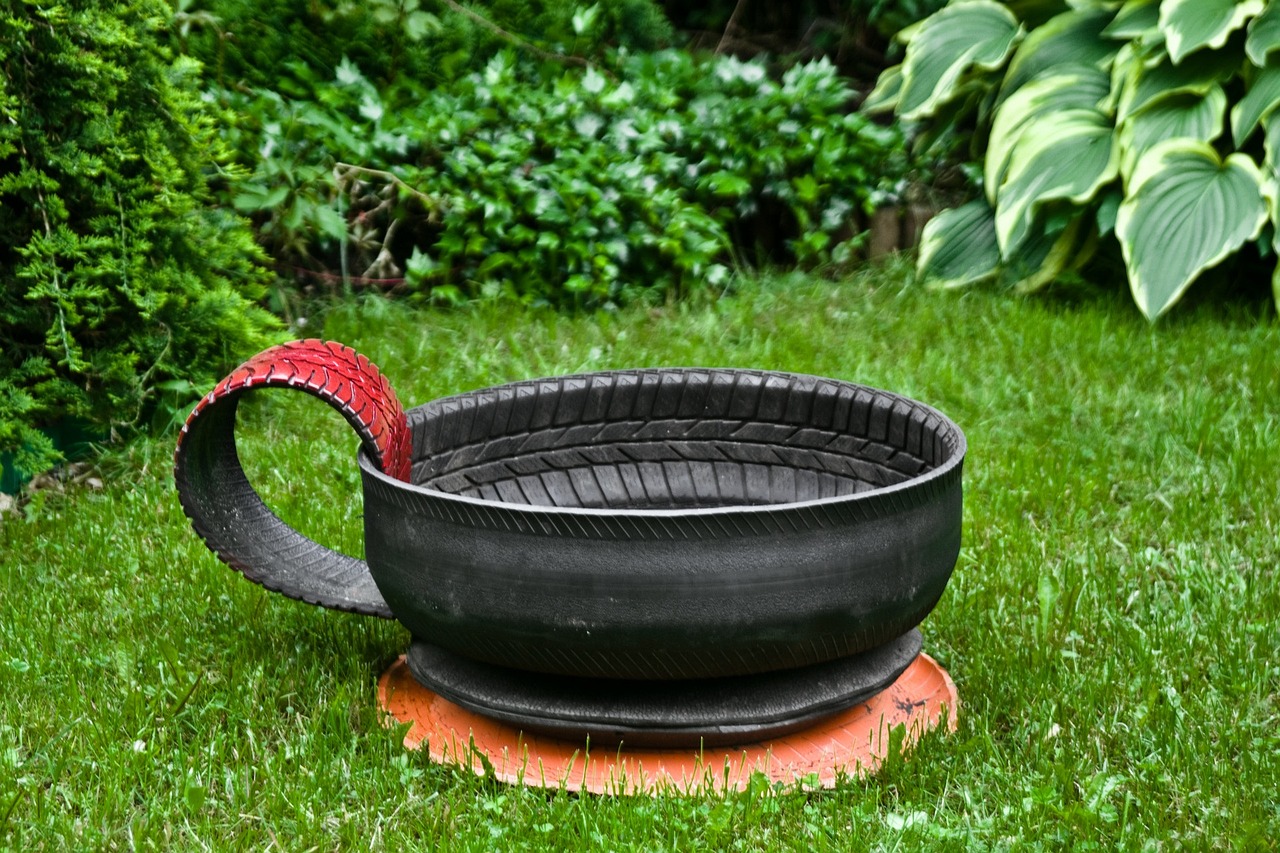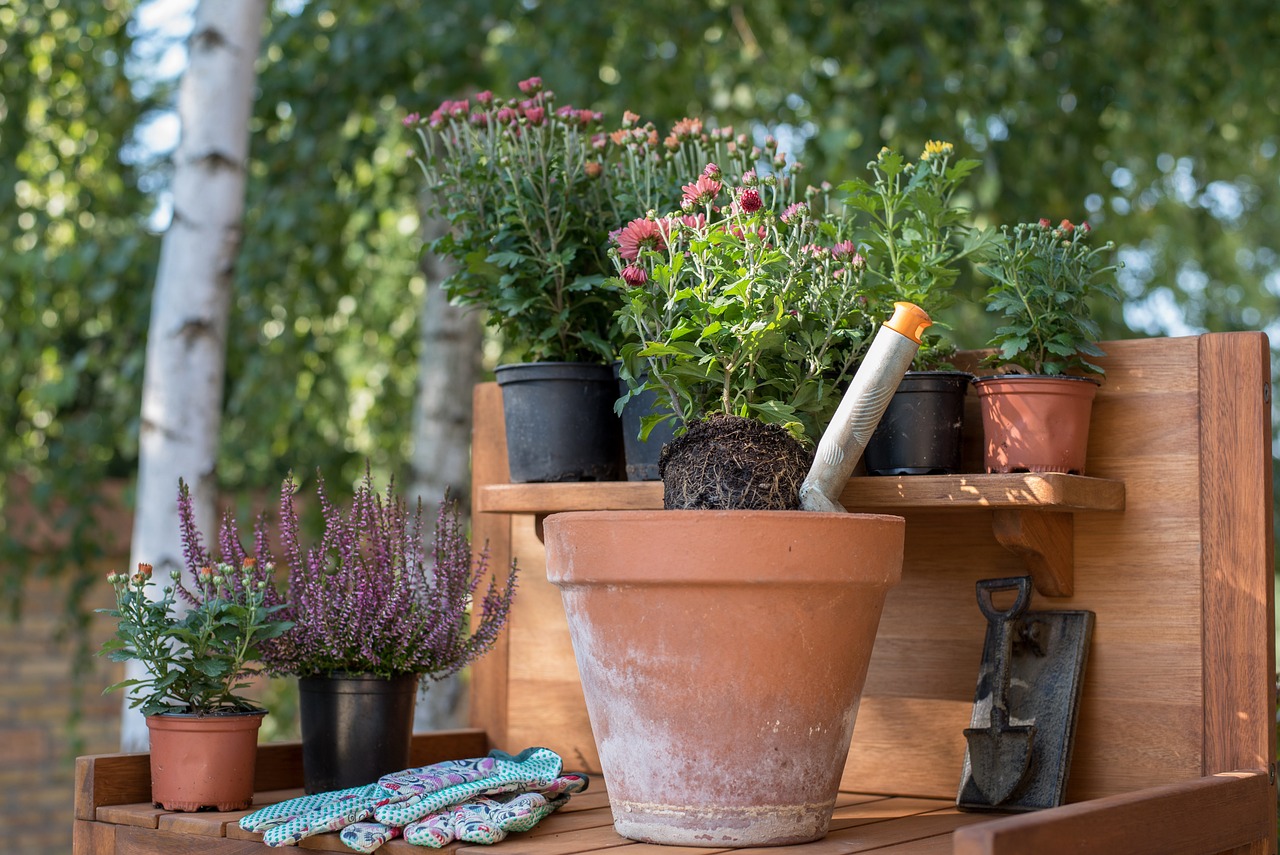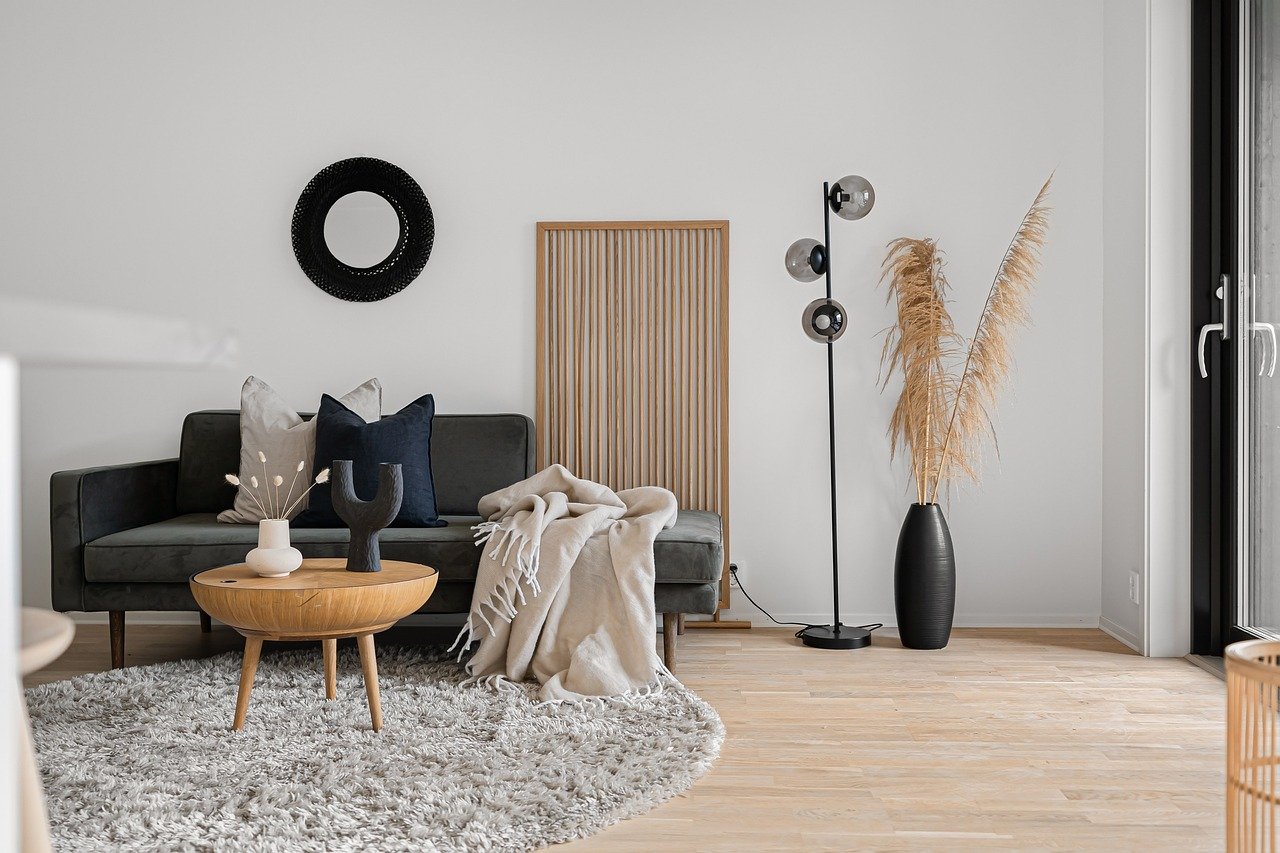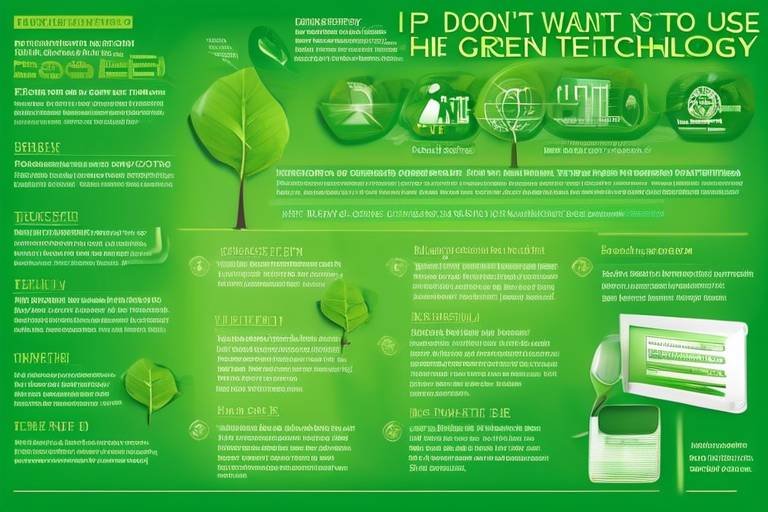10 Tips for Living Sustainably in an Apartment
Living sustainably in an apartment is not just a trend; it's a lifestyle choice that can make a significant impact on the environment. By making conscious decisions and adopting sustainable practices, you can transform your apartment into a green oasis. Here are 10 tips to help you live sustainably and reduce your ecological footprint right from the comfort of your own home.
First and foremost, reducing energy consumption should be a top priority. Simple changes like switching to energy-efficient LED bulbs, unplugging electronics when not in use, and adjusting your thermostat by just a few degrees can go a long way in saving energy and cutting down on utility bills.
Conserving water is another crucial aspect of sustainable living. Installing water-saving fixtures, fixing leaks promptly, and being mindful of your water usage can help preserve this precious resource and lower your water bills.
Waste reduction is key to living sustainably. Recycling, composting, and avoiding single-use plastics are effective ways to minimize the waste you generate and contribute to a cleaner, healthier environment for all.
Why not take a step further and grow your own food? Starting a small indoor garden or growing herbs in pots not only allows you to enjoy fresh, organic produce but also helps reduce your carbon footprint from transportation.
Switching to eco-friendly cleaning products is a simple yet impactful change you can make. By opting for environmentally friendly cleaners, you not only reduce your exposure to harmful chemicals but also contribute to a cleaner indoor environment.
When it comes to decorating your apartment, choose sustainable decor options. Opt for furniture and decor made from eco-friendly materials like bamboo, reclaimed wood, or recycled materials to create a stylish and environmentally conscious living space.
Supporting local and sustainable brands is another way to live more sustainably. By shopping from businesses that prioritize ethical and eco-friendly practices, you can reduce the carbon footprint of your purchases and support a more sustainable economy.
Embracing minimalism is a powerful way to reduce waste and live more sustainably. Decluttering regularly, buying only what you need, and focusing on experiences over material possessions can lead to a more fulfilling and environmentally friendly lifestyle.

Reduce Energy Consumption
Living sustainably in an apartment can be challenging, but with these 10 tips, you can reduce your environmental impact and promote a more eco-friendly lifestyle within the confines of your living space.
When it comes to living sustainably, reducing energy consumption is key. Simple changes like using LED bulbs instead of traditional incandescent ones can make a significant difference. These energy-efficient bulbs not only last longer but also consume less electricity, helping you lower your energy usage and ultimately save on utility bills.
Another effective way to reduce energy consumption is by unplugging electronics when not in use. Many devices continue to draw power even when turned off, contributing to what is known as "phantom energy usage." By unplugging devices or using power strips that can be easily switched off, you can prevent this unnecessary energy drain.
Additionally, adjusting your thermostat by just a few degrees can also lead to substantial energy savings. During the colder months, lowering the thermostat when you're away or asleep, and using extra blankets or wearing warmer clothing, can help reduce your heating costs.

Conserve Water
Water conservation is a crucial aspect of living sustainably in an apartment. By implementing simple yet effective strategies, you can reduce your water usage and contribute to a healthier environment. One of the first steps you can take is to install water-saving fixtures in your apartment. Low-flow showerheads, faucet aerators, and dual-flush toilets are excellent options that can significantly decrease the amount of water you use daily.
Additionally, it's essential to address any leaks promptly. A dripping faucet or a running toilet may seem minor, but over time, they can waste a significant amount of water. Regularly check for leaks and fix them immediately to prevent unnecessary water wastage.
Being mindful of your water usage habits is also key to conserving this precious resource. Simple actions like turning off the tap while brushing your teeth, taking shorter showers, and only running the dishwasher and washing machine with full loads can make a big difference in reducing your water consumption.
Furthermore, consider collecting rainwater for non-potable uses like watering plants or cleaning. Setting up a rain barrel on your balcony or terrace can help you utilize natural water sources and decrease your reliance on treated water for certain tasks.
Remember, every drop counts when it comes to water conservation. By making conscious choices and adopting water-saving practices in your daily routine, you can play a significant role in preserving this vital resource for future generations.

Practice Waste Reduction
When it comes to living sustainably in an apartment, practicing waste reduction is a crucial step towards minimizing your environmental impact. By adopting simple yet effective strategies, you can significantly reduce the amount of waste you generate and contribute to a cleaner, healthier environment.
One effective way to practice waste reduction is by recycling materials such as paper, plastic, glass, and metal. Setting up designated recycling bins in your apartment can make it easier to separate recyclable items from general waste, ensuring they are properly recycled and diverted from landfills.
Another important aspect of waste reduction is composting organic waste. Setting up a compost bin in your apartment allows you to turn food scraps and other organic materials into nutrient-rich compost that can be used to fertilize plants or gardens. This not only reduces the amount of waste sent to landfills but also promotes sustainable gardening practices.
When it comes to shopping for everyday items, avoiding single-use plastics is key to reducing waste. Opt for reusable bags, bottles, and containers to minimize the amount of plastic waste generated in your household. Additionally, choosing products with minimal or biodegradable packaging can further reduce your environmental footprint.
One innovative way to practice waste reduction is by upcycling items that would otherwise be discarded. Get creative and repurpose old furniture, clothing, or household items to give them a new life and prevent them from ending up in the trash. Upcycling not only reduces waste but also adds a unique touch to your living space.
By incorporating these waste reduction practices into your daily routine, you can make a positive impact on the environment and contribute to a more sustainable future, even within the confines of an apartment setting.

Grow Your Own Food
Living sustainably in an apartment can be challenging, but with these 10 tips, you can reduce your environmental impact and promote a more eco-friendly lifestyle within the confines of your living space.
When it comes to living sustainably, growing your own food is not only rewarding but also environmentally friendly. By starting a small indoor garden or planting herb pots, you can take a significant step towards reducing your carbon footprint. Imagine the satisfaction of plucking fresh herbs or vegetables from your own mini-garden, knowing that you are cutting down on transportation emissions and packaging waste.
Additionally, growing your own food allows you to have more control over the use of pesticides and chemicals, ensuring that you consume fresh, organic produce. It's a great way to connect with nature and appreciate the process of nurturing plants from seed to harvest.
If you have limited space, consider vertical gardening or hanging planters to make the most of your apartment's layout. You can grow a variety of plants, from leafy greens to cherry tomatoes, right in your living space. Not only does it add a touch of greenery to your home, but it also promotes a healthier and more sustainable lifestyle.

Use Eco-Friendly Cleaning Products
When it comes to keeping your apartment clean and fresh, using eco-friendly cleaning products is not only beneficial for the environment but also for your health. Conventional cleaning products often contain harsh chemicals that can be harmful when inhaled or come into contact with your skin. By switching to environmentally friendly alternatives, you can create a safer living environment for yourself and your loved ones.
Many eco-friendly cleaning products are made from natural ingredients such as vinegar, baking soda, and essential oils, which are effective at cleaning without the need for harsh chemicals. These products are biodegradable, meaning they break down easily without causing harm to the environment once they go down the drain.
Moreover, eco-friendly cleaning products often come in recyclable packaging, reducing the amount of plastic waste that ends up in landfills or oceans. By making the switch to these products, you are not only reducing your carbon footprint but also contributing to a cleaner and healthier planet for future generations to enjoy.
Next time you reach for a cleaning product, consider opting for eco-friendly alternatives that are gentle on the environment and your home. Your apartment will thank you, and so will the planet!

Opt for Sustainable Decor
Living sustainably in an apartment can be challenging, but with these 10 tips, you can reduce your environmental impact and promote a more eco-friendly lifestyle within the confines of your living space.
When it comes to decorating your apartment, choosing sustainable decor can make a significant difference in reducing your environmental footprint. Opting for furniture and decor made from eco-friendly materials not only adds a unique touch to your living space but also helps in preserving the planet for future generations.
Consider selecting items crafted from sustainable materials such as bamboo, reclaimed wood, or recycled materials. These options not only look stylish but also contribute to a greener environment by promoting the use of renewable resources and reducing waste.
Additionally, look for decor pieces that are ethically sourced and produced. Supporting brands that prioritize sustainability and fair labor practices can make a positive impact on both the environment and communities around the world.
Q: Is it expensive to decorate with sustainable materials?
A: While some sustainable decor items may have a higher upfront cost, they are often more durable and of higher quality, making them a worthwhile investment in the long run. Additionally, you can find affordable options by shopping from local artisans or second-hand stores that offer eco-friendly products.
Q: How can I ensure that the sustainable decor I choose is truly eco-friendly?
A: Look for certifications such as Forest Stewardship Council (FSC) for wood products or Global Organic Textile Standard (GOTS) for textiles to ensure that the items you purchase meet stringent environmental and social criteria. Researching brands and their sustainability practices can also help you make informed choices.

Support Local and Sustainable Brands
Supporting local and sustainable brands is not only beneficial for the environment but also for your community and overall well-being. By choosing products from local businesses, you are reducing the carbon footprint associated with transportation and supporting the local economy. These brands often prioritize sustainable practices, using eco-friendly materials and ethical production methods.
When you opt for local and sustainable brands, you are contributing to the preservation of traditional craftsmanship and promoting a sense of community. Knowing where your products come from and how they are made can give you a deeper appreciation for the items you purchase. Additionally, supporting these brands can lead to a more personalized shopping experience and a stronger connection to the products you bring into your home.
By consciously selecting local and sustainable brands, you are making a statement about your values and priorities. It shows that you care about the environment, support ethical business practices, and value quality over quantity. These choices may inspire others to follow suit, creating a ripple effect that can lead to positive change on a larger scale.

Practice Minimalism
Embracing minimalism in your apartment living can have a profound impact on both your space and the environment. By decluttering regularly and resisting the urge to accumulate unnecessary items, you not only create a more serene living environment but also reduce waste and consumption. Minimalism is about focusing on what truly adds value to your life, whether it's experiences, relationships, or possessions that serve a purpose. Instead of chasing after material possessions, minimalism encourages you to prioritize quality over quantity and find joy in simplicity.
Now, for the Frequently Asked Questions section:Q: Is it difficult to transition to a minimalist lifestyle in an apartment?
A: Transitioning to a minimalist lifestyle in an apartment can be challenging at first, especially if you're used to a more cluttered living space. However, by taking small steps, decluttering gradually, and focusing on the benefits of minimalism, you can make the transition smoother and more sustainable.
Q: How can minimalism benefit the environment?
A: Minimalism can benefit the environment by reducing consumption, waste generation, and carbon footprint. By owning fewer possessions and being mindful of what you bring into your apartment, you contribute to a more sustainable lifestyle that conserves resources and minimizes environmental impact.
Q: Can minimalism help save money in an apartment?
A: Yes, minimalism can help save money in an apartment by encouraging you to buy only what you need, avoid impulse purchases, and focus on quality over quantity. By reducing clutter and unnecessary items, you may also find that you spend less on storage solutions and maintenance, ultimately leading to financial savings.
Remember to include these FAQs at the end of the article for a comprehensive and informative read.Frequently Asked Questions
- How can I reduce energy consumption in my apartment?
To reduce energy consumption, consider using LED bulbs, unplugging electronics when not in use, and adjusting your thermostat to more energy-efficient settings. These simple changes can significantly lower your energy usage and utility bills.
- What are some ways to conserve water in an apartment?
You can conserve water in your apartment by installing water-saving fixtures, fixing leaks promptly, and being mindful of your water usage. These actions help conserve this precious resource and reduce your environmental footprint.
- How can I start growing my own food in a small apartment?
You can start growing your own food in a small apartment by setting up a small indoor garden or herb pots. This allows you to grow your own produce, reduce your carbon footprint from transportation, and enjoy fresh, organic food at home.
- Why is it important to support local and sustainable brands?
Supporting local and sustainable brands is crucial as it helps reduce the carbon footprint of your purchases and supports ethical and eco-friendly practices. By choosing these brands, you contribute to a more sustainable and environmentally conscious lifestyle.



















